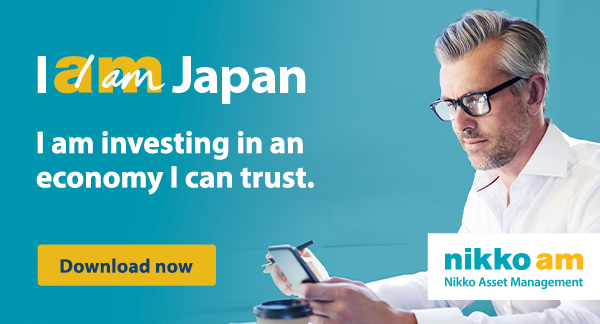Insights
Investment Insights by our experts and thought leaders
Harnessing Change-Monthly Insights: Asian Equity (November 2024)
by — 12 December, 2024
China has been feeling the pressure with Donald Trump due to return for his second term as US president. However, during Trump's first term China actually outperformed the S&P 500 index, which
demonstrates the importance of domestic policies over external pressure.
Navigating Japan Equities: Monthly Insights From Tokyo (December 2024)
by , — 11 December, 2024
This month we evaluate factors expected to attract attention in 2025 from a Japanese economy and equity market perspective. And as the government compiles another stimulus package, we discuss how
Japan could be about to test the Laffer curve theory, which argues that tax cuts can actually increase overall tax revenue.
On the Ground in Asia-Monthly Insights: Asian Fixed Income (November 2024)
by — 10 December, 2024
Asian local government bonds are positioned to perform well in 2025, supported by accommodative central banks amid an environment of benign inflation and moderating growth. We expect Asian corporate
and bank credit fundamentals to stay resilient, aside from a few sectors and specific credits which may be impacted by tariff threats or US policy changes.
Global market and economic outlook 2025
by , — 05 December, 2024
In 2025, US economic growth is expected to continue due to fiscal stimulus, despite above-target inflation. Meanwhile, the strong dollar could face disruptions, the Bank of Japan may keep raising
interest rates and China is seen balancing domestic stimulus with potential US tariffs. European growth may recover slowly due to US tariff risks, and global central banks' policies will likely
diverge to manage these challenges.
Singapore equity outlook 2025
by — 05 December, 2024
While 2024 was characterised by broad market gains (or “beta” returns) in Singapore, we expect 2025 to be more centred on generating excess returns (or “alpha”). We believe the service economy, represented by financial services and transportation, will continue to contain key sectors which offer high sustainable returns, positive fundamental change and growth.
Global fixed income outlook 2025
by — 05 December, 2024
We believe that a changing political environment could present opportunities across asset classes in 2025, with fixed income in particular poised to benefit as markets adjust to more realistic inflation expectations.
New Zealand equity outlook 2025
by , — 05 December, 2024
As we head into 2025, we have picked three key elements that we believe will have the greatest influence over market behaviour and performance: interest rates, the strength of the New Zealand dollar
and geopolitical uncertainty.
Global equity outlook 2025
by — 05 December, 2024
Throughout history, equity investors have benefitted from maintaining a long-term view and an optimistic outlook on humanity's ability to prevail in the face of adversity. This might once again be the
case, meaning that the biggest risk might be not having exposure to the highest quality earnings streams through a diversified portfolio of global equities.
Asian equity outlook 2025
by — 05 December, 2024
Many may expect the incoming Trump administration's transactional approach to be detrimental to the geopolitical and macroeconomic landscapes. However, we believe that Washington's mercantilist stance
should not prevent Asian markets from offering attractive absolute returns, as was the case during the 2017-2021 period under Trump's first term.
New Zealand fixed income outlook 2025
by , — 05 December, 2024
New Zealand's economy is faced with challenges including a weak currency, low productivity growth and slowed immigration. However, there are potential posi'tives, such as declining interest rates and
possible gains in longer maturity bonds. Ultimately, recovery will require time and effort, with the central bank playing a crucial role.
Asian fixed income outlook 2025
by — 05 December, 2024
Asian local government bonds are poised to perform well in 2025 thanks to accommodative policies by central banks amid benign inflation and moderating growth. The global easing cycle is expected to lower global yields, thereby providing additional support to Asian bond markets.
Japan equity outlook 2025
by — 05 December, 2024
With Japan overcoming deflation and ushering in a period of progress and consolidation despite market volatility and political upheaval, we expect Japanese companies to make strategic decisions in
2025 that attract global investors in larger numbers.
Global multi-asset outlook 2025
by — 05 December, 2024
Our outlook for 2025 is relatively positive. We expect the business-friendly stance of the Republican Party, coupled with easier monetary policy, will be supportive for risk assets, particularly in the US market. While we hold various views, we rely on our strategic asset allocation to guide our long-term outlook—with healthy equities, short-dated credit, the US dollar and gold forming our backbone for the medium term.
Future Quality Insights: pandemic memories and ongoing impact on companies
by , — 02 December, 2024
We believe that investors should strive for a diversified global portfolio of quality companies that can thrive in an environment where the cost of capital may be higher than previously expected. Our
collective experience of the pandemic reminds us that such an approach is a good idea.
Balancing Act Monthly Insights: Global Multi-Asset (November 2024)
by — 29 November, 2024
We increased the overweight to growth assets given that economic data remains resilient against falling inflation and as global central banks lower interest rates. Regarding defensive assets, we have
been relatively negative on sovereign bonds, and despite the rate-cutting cycle underway, we maintain this view.
Harnessing Change - Monthly Insights: Asian Equity (October 2024)
by — 27 November, 2024
During the first Trump presidency, China outperformed the S&P 500 and all the perceived beneficiaries of "China Plus One". While history may not be repeated, it is clear that China's domestic policy
and market environment will become significant factors during Trump's second presidency.
On the Ground in Asia-Monthly Insights: Asian Fixed Income (October 2024)
by — 22 November, 2024
We have adopted a more cautious stance on Thai bonds with the Bank of Thailand not expected to ease policy further following its interest rate cut in October. Elsewhere in the region, the
reappointment of Sri Mulyani Indrawati as Indonesia's finance minister provides a positive medium-term outlook for Indonesian government bonds
Can the momentum shift on plastic pollution?
by , — 20 November, 2024
The highly anticipated Global Plastics Treaty carries high hopes as it will be the first attempt at forming a global legally binding instrument to address plastic pollution across its entire
lifecycle. Tackling plastic pollution will be a long, bumpy road requiring international cooperation, stringent policies and significant financial investment to drive effective solutions.
New Zealand Fixed Income Monthly (October 2024)
by , — 14 November, 2024
The bond market has turned its attention to the likely size of further interest rate reductions now that the RBNZ has made two cuts to the Official Cash Rate in quick succession. Our view is that New
Zealand’s monetary policy is on track to revive the economy, although the recovery will take some time.
New Zealand Equity Monthly (October 2024)
by , — 13 November, 2024
The RBNZ's recent shift to a more dovish stance already appears to have buoyed New Zealand's equities at this early stage of the cycle, with examples including signs of strength in the retirement
village and rental sectors, and the market has been delivering strong returns.
FOMC meeting: uptick in uncertainty with jobs, inflation and price expectations in focus
by , — 11 November, 2024
The Federal Reserve's interest rate cut in November was largely expected. However, Fed Chair Powell's comments pointed to changes in language, suggesting a shift towards a more uncertain policy, with
inflation and employment trends influencing future rate adjustments.
Navigating Japan Equities (November 2024): assessing the impact of the US elections on Japan
by , — 08 November, 2024
As with the other markets, Japanese equities reacted immediately to Donald Trump's US presidential election win. The immediate election impact is expected to fade relatively quickly, with market focus turning to the trade policies Trump may pursue upon his return to the White House.
Balancing Act: Global Multi-Asset Quarterly (Q3 2024)
by — 07 November, 2024
Volatility dominated risk markets in the early part of the July-September quarter, while perceptions of the US employment environment also had an impact. Over the quarter, we kept an overweight position on growth assets and maintained a neutral position on defensive assets.
After Trump’s win, fiscal policy and inflation risks in focus
by , — 07 November, 2024
Following Donald Trump's US presidential election win, in the near term we remain constructive on US growth and stocks, with the markets expecting corporate tax cuts and seeing a general penchant toward deregulation across industries as positive for earnings. In the longer term, we anticipate a rise in tail risks associated with fewer hurdles to fiscal expansion and higher US inflation.
Japan’s economic reflation in five charts
by , — 31 October, 2024
We illustrate Japan’s economic reflation by highlighting the following trends: households turning from savings to spending, pent-up demand meeting high wage growth, real household incoming becoming positive, a strong inbound tourism rebound and increasing willingness by firms to spend cash.
Balancing Act Monthly Insights: Global Multi-Asset (October 2024)
by — 29 October, 2024
The start of the Fed’s rate cut cycle was a boost to risk sentiment, with resilient US data and declining inflation placing the market in a goldilocks situation. Likewise, the start of a global rate cutting cycle sets up a positive environment for defensive assets.
Navigating Japan Equities (November 2024): view of lower house elections
by , — 28 October, 2024
In a move that reflected their disapproval of Japan's ruling coalition, voters deprived it of a lower house majority. While this outcome may not have a direct impact on the market, it is important to monitor the impact of political developments on economic policies in the short term.
Global Equity Quarterly (Q3 2024)
by — 25 October, 2024
The markets suggest that growth will stay at a premium in the short term. Hence, our focus on Future Quality companies, especially those capable of taking market share as the economic backdrop worsens, may prove beneficial.
After the correction: the case for value investing in Japan
by , — 24 October, 2024
When extreme market pessimism occurred in the past, there were significant corrections in undervalued stocks. While we anticipate it will take time for volatile market trends to stabilise, we believe now is a prime opportunity for bargain hunting in the Japanese market.
Harnessing Change-Monthly Insights: Asian Equity (September 2024)
by — 21 October, 2024
The market expects more rate cuts from the Fed, giving Asian central banks room to lower rates, which is very supportive for domestic growth. Meanwhile, with more China stimulus measures anticipated, we see asset allocation into Chinese equities picking up pace and lift the entire market.
Japan’s long history of undercompensating equity investors, a legacy of deflation, is coming to an end with its risk premium now achieving parity with that of the US. This historic shift is being driven by rising dividend payouts ratios, strong earnings and reasonable valuation of underlying equities.
On the Ground in Asia-Monthly Insights: Asian Fixed Income (September 2024)
by — 17 October, 2024
The start of the Fed’s rate cut cycle has created room for monetary easing across Asia. We expect Asian government bond yields, particularly high yielders like those of India, Indonesia and the Philippines, to trend lower.
Home advantage: three reasons why Japan’s resurgence is no flash in the pan
by , — 17 October, 2024
Now that the Bank of Japan has exited its unconventional policy measures, particularly negative interest rates, the key question among global investors, especially those who remember Japan’s years of stop-start recovery attempts, is whether this time is really different.
Corporate Japan looks healthier now than it has ever been
by , — 09 October, 2024
Japan’s deflationary era was more than a lengthy period of declining prices. It also brought about profound yet rational changes in corporate behaviour. That ingrained desire from companies to hold onto cash and rein in spending may take time to fully dissipate, but there is already a notable shift underway.
Navigating Japan Equities: Monthly Insights From Tokyo (October 2024)
by , — 08 October, 2024
This month we assess views in the market that the BOJ may have taken a dovish turn at its September policy meeting; we also point to further signs of a steady rise in wages and how that paves the way for a recovery in consumption and, ultimately, higher stocks.
New Zealand Equity Monthly (September 2024)
by , — 07 October, 2024
Nikko AM NZ released its first annual “climate statement” under New Zealand’s new climate-related disclosures regime in July. The framework requires approximately 200 organisations, including large publicly listed companies, to release reports on how their activities may impact the climate and the effect of the climate on their businesses.
Are China’s stimulus measures enough?
by — 04 October, 2024
The raft of stimuli recently unveiled in China is the most coordinated policy since the start of the country’s economic downturn. This, along with the start of the Fed’s monetary policy easing, represents key fundamental changes. However, as the old saying goes, the devil is in the details.
Global Investment Committee’s outlook: low risk no longer
by , — 04 October, 2024
We perceive heightened risk to both growth (two-way) and inflation (upside) compared to our previous guidance. Nevertheless, our central near-term scenario remains for slowing but positive growth in the US, alongside slowly moderating prices.
Staying on the road less travelled
by — 01 October, 2024
As global equity investors, we are often asked how we have successfully navigated an evolving market landscape since the strategy’s inception in 2014. The truth can ultimately be attributed to three key factors: humility, collaboration with people who share the same core team values and a robust investment philosophy.
Global Equity Quarterly (Q2 2024)
by — 27 September, 2024
Perhaps there may be disappointment at the lack of money-spinning applications pertaining to AI which may cause investor sentiment to cool. Nevertheless, the improvements in earnings and cash flow appear sustainable so far and are certainly much more attractive than those being produced by many other parts of the economy.
Balancing Act-Monthly Insights: Global Multi-Asset (September 2024)
by — 27 September, 2024
For August we maintained our overweight growth position and a neutral position on defensives. Several factors continue to support our optimism towards growth assets, including the first rate cut from the Fed, earnings surprises remaining above their historic average, US economic growth beating expectations, and large fiscal spending globally.
What the Fed’s rate cut tells us about current financial conditions
by , — 26 September, 2024
The Federal Reserve’s 50 bps rate cut demonstrated the power of financial markets at present. As the markets had already priced in a significant probability of a 50 bps reduction, the Fed could have viewed such conditions as a good time to “buy insurance” and implement a half a percentage point cut while the markets were likely to absorb it well.
Less may be more in Japan’s LDP leadership contest
by , — 25 September, 2024
There is one major thing to keep in mind going into Japan’s upcoming leadership contest for the ruling Liberal Democratic Party (LDP)—the country’s looming general election. The ruling party’s chief concern is to select a candidate who can prevail at this election. This makes the candidacy of an incipient LDP leader more of a marathon than a sprint.
Unlocking value in Japan’s cash-rich small and mid-cap firms
by , — 25 September, 2024
We believe Japan’s programme of ongoing reforms will further benefit “cash-rich” firms, many of which are small and mid-cap companies.
Harnessing Change-Monthly Insights: Asian Equity (August 2024)
by — 18 September, 2024
We believe that the biggest fundamental change for Asian markets in the medium term is a shift in the interest rates regime, notably that of the US.
From taboo to trend: the rise of shareholder activism in Japan
by , — 18 September, 2024
Once considered taboo in Japan, shareholder activism has been evolving. Japanese equity market culture has been changing dramatically, enabling shareholders to be more vocal and sometimes even hostile towards the companies they invest in, all in the name of “shareholder engagement”.
On the Ground in Asia-Monthly Insights: Asian Fixed Income (August 2024)
by — 17 September, 2024
In a positive bond market environment driven by global monetary easing expectations, we favour government bonds from India, Indonesia and the Philippines, where higher yields remain attractive to investors.
Navigating Japan Equities: Monthly Insights From Tokyo (September 2024)
by , — 06 September, 2024
This month we assess why the market is unfazed by Japan’s upcoming leadership change; we also explain how a bid for a prominent Japanese convenience store operator has highlighted how affordable domestic firms now look in the eyes of their foreign counterparts.
New Zealand Fixed Income Monthly (August 2024)
by , — 04 September, 2024
The Reserve Bank of New Zealand’s rate cut in August appears to constitute a slight easing of the brakes rather than a large change. With the Official Cash Rate at 5.25%, conditions are still restrictive. The first signs of recovery are likely to be seen in improvements in business and consumer confidence, but it will take some time for the impact to filter through to borrowers.
New Zealand Equity Monthly (August 2024)
by , — 02 September, 2024
In August the Reserve Bank of New Zealand lowered interest rates, marking the first change in the Official Cash Rate since May 2023. We expect New Zealand equities to be supported if the central bank maintains an accommodative approach.























































